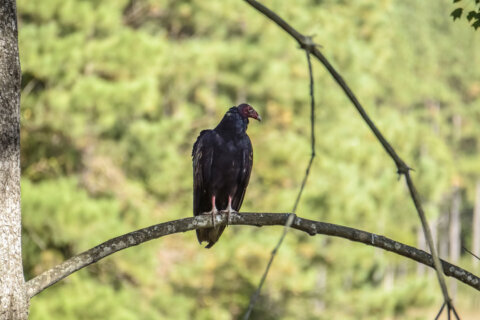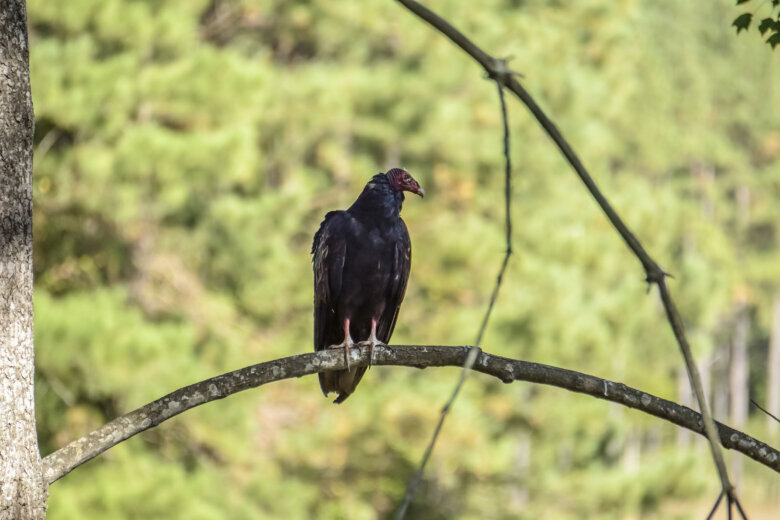
They’re big, heavy, ungainly birds with bald, red heads and a black plumage. They communicate with hisses and, when threatened, will vomit in the general direction of the threat.
But at the Blue Ridge Wildlife Center in Boyce, Virginia, the role of turkey vultures is being celebrated this Thanksgiving season.
Alysa Everly, the education manager with the center, explained that turkey vultures, as scavengers, help clean carcasses and animal remains from the environment. She calls them nature’s “cleanup crew.”
Not only do they remove the remains of dead animals, but Everly said they help prevent the spread of disease and toxins.
“They have one of the strongest stomach acids of any animal, and that basically annihilates any disease,” she said.
So, if a black vulture eats the carcass of an animal infected with rabies, that rabies virus will not be passed on to other animals. The same is true for carcasses tainted with anthrax or tuberculosis.
“So they are really, really keeping us (healthy),” Everly said.
Turkey vultures are one of two vulture species native to North America, and they can be seen circling overhead, often mistaken for other hawks or even bald eagles.
Their name comes from the fact that the could often be confused with native North American turkeys, from their big, heavy bodies to their featherless red heads, Everly said.
Visitors to Blue Ridge can “meet” a turkey vulture up close.
Four-year-old Moira Rose was brought to the center after being found as a chick in a box on a boat landing.
Everly said despite the efforts of staffers to make sure she didn’t imprint on humans — that included caregivers wearing bird masks, feeding her with tongs, even dressing up in camouflage suits so that she wouldn’t see them as humans — Moira Rose was simply too attached to people to be a good candidate for release into the wild.
Everly said the staff took advantage of the fact that they had other vultures in their care that were destined for release. “So we scooted her in with those other vultures — some black and turkey vultures,” and urged her to “go make friends” with those other vultures, she said.
“Unfortunately for Miss Moira, she just continued to get more and more friendly, even as we became more hands-off, to the point where she would run up, untie people’s shoelaces,” Everly said. “She just thinks that people are awesome and friends.”
Blue Ridge Wildlife Center has a “wildlife walk” where a variety of “ambassadors” like Moira Rose are cared for by the staff, according to Everly.
Get breaking news and daily headlines delivered to your email inbox by signing up here.
© 2024 WTOP. All Rights Reserved. This website is not intended for users located within the European Economic Area.









